Six-fold increase in steroid users, says charity
- Published
Steroid user Dave Crosland discusses the side-effects
A leading drugs and alcohol charity has told Newsbeat it has seen a sharp rise in the number of steroid users.
CRI runs 21 needle exchanges in England and in 2010 it saw 290 people who were using steroids.
By 2013 that number had increased to 2,161, a rise of 645%.
Now the health watchdog NICE has updated its guidelines for needle exchanges in England. It says the growth in steroid users is a "challenge" for drugs workers.
Dave Crosland - who is 6ft 2in, weighs 25st 7lb and has a 64in chest - spends hours in the gym, eats 10,000 calories a day and takes anabolic steroids.
He thinks that without the steroids he would be at least six stone lighter.
Dave says he tolerates the drugs very well but admits to getting flu-like symptoms and swellings after injecting himself.
Side effects
Dave adds: "Think about going out and getting drunk. Think how rough you feel after that. It's very similar."
He says there is some debate about whether or not he has got the biggest arm muscles in the country.
Steroids can let you train harder and for longer. They help to build up muscle mass but there is a long list of potential problems.
The list of side-effects range from acne, hair loss and shrunken testicles, to fertility, liver and heart problems.
Even though he is very open about his own use, Dave also advises other people on the risks they could run.
He is increasingly worried about young users: "There is a massive group of lads now, particularly in the 17 to 24 age group, that are abusing steroids something chronic, with no idea of what they're taking.
"They are messing themselves up quite severely, both mentally, hormonally and reproductively," he says.
'Pretty lean'
Matt Tindall has just turned 17. He spends hours on end training at the gym but he is not getting the results he wants.
His ideal would be to look like Arnold Schwarzenegger in his prime but he weighs 10st 7lb and admits he is "pretty lean".
He is thinking about taking steroids: "It's just something you've got to consider if you want to put on some big size.
"I've come to Dave to ask him for some advice because, well, he's very large. Probably the largest person I've ever seen in real life."
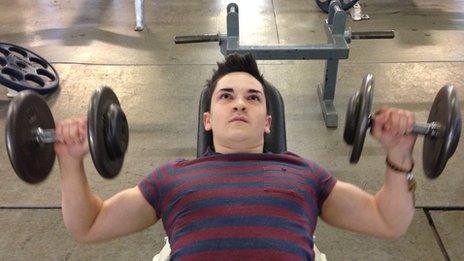
Matthew Tindall has spent two "torturous" years working out
'Gruesome' effects
Dave tells Matt to forget about steroids until he is much older.
He says: "I would never and I could never recommend anyone to use. It's a choice you have to make but if you are considering it, you need to wait quite a few years yet."
Dave adds: "The cold hard truth is of it is, yes they do work. But yes, there are side-effects. The younger you use, certain side effects become more prevalent and the main one for you is fertility."
After chatting to Dave, Matt is completely put off the idea.
He says: "The side effects are all quite gruesome. Is it really worth it?"
Body image
Every couple of months Dave goes to stock up on clean equipment at a needle exchange. He drops off dirty needles and collects clean injecting equipment.
Needle and syringe programmes were set up in the 1980s to stop the spread of diseases like HIV.
Traditionally they have focused on people who inject drugs like heroin and crack cocaine.
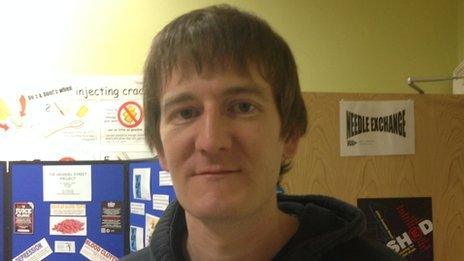
Drugs worker David Rourke supports steroid users
But CRI says a third of the needle exchanges it runs now support more steroid users.
"We're seeing a lot more steroid users, and that is going up all the time," says David Rourke who works at the Arundel Street Project, a needle exchange in Sheffield.
He thinks it is partly due to pressure on people to look a certain way and says he also sees people who inject human growth hormone and tanning or slimming agents.
Drug addicts
Prof Mike Kelly, the Director of Public Health at the health watchdog NICE, says the increase in steroid users is a "challenge".
He says: "They see themselves as big, fit, healthy. They don't see themselves as drug misusers, or drug addicts. We therefore need to find ways to make get them into our services."
Prof Kelly adds: "The risks are just the same. The risk of the spread of blood-borne infections, of HIV, hepatitis B and C."
NICE has updated its guidelines for needle exchanges in England.
The guidelines say needle and syringe programmes should adapt to steroid users by visiting gyms, staying open outside of normal working hours and giving specialist advice on training and nutrition.
Follow us @BBCNewsbeat, external on Twitter
- Published30 October 2013

- Published24 September 2013
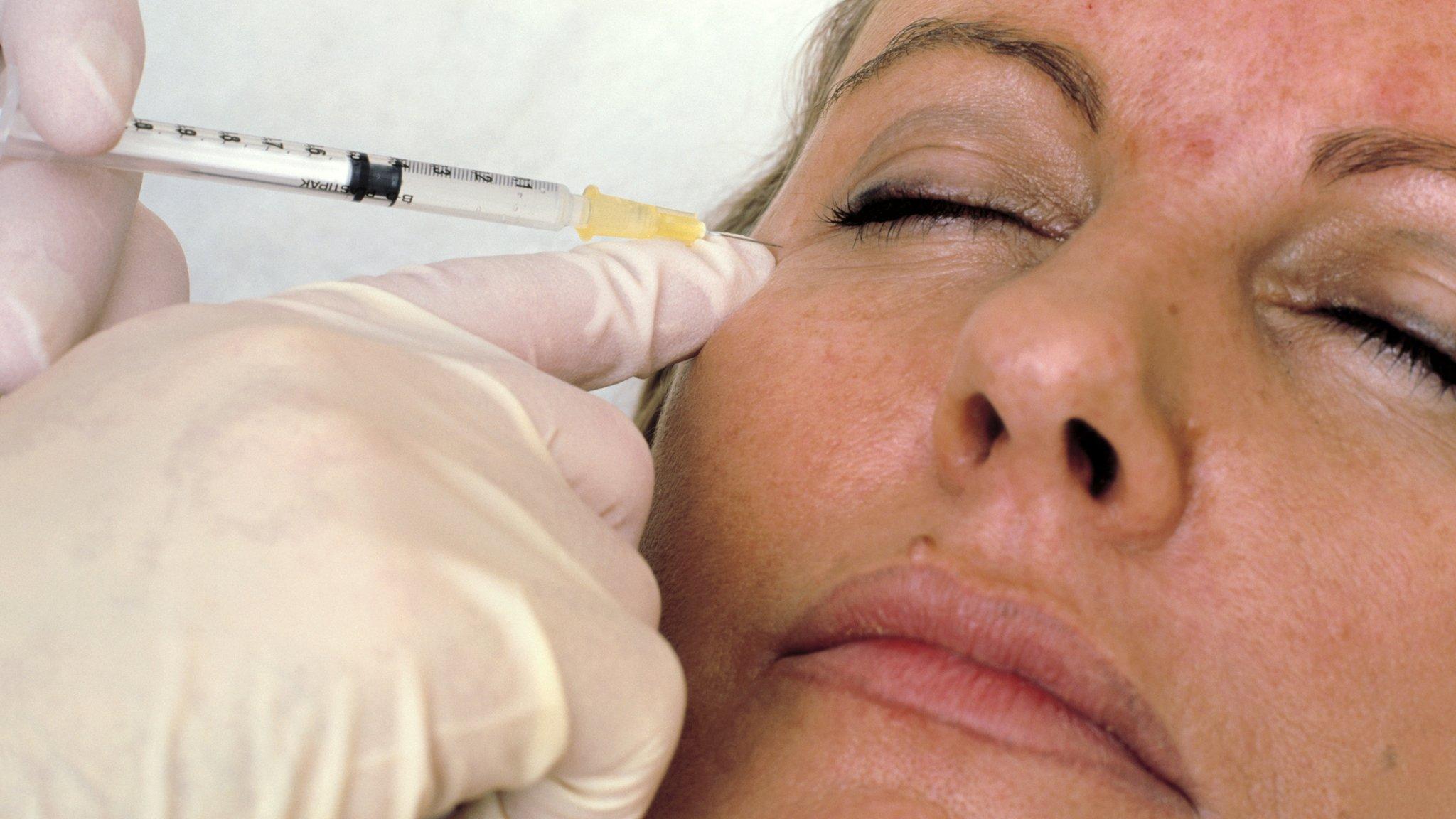
- Published23 July 2013

- Published21 June 2013
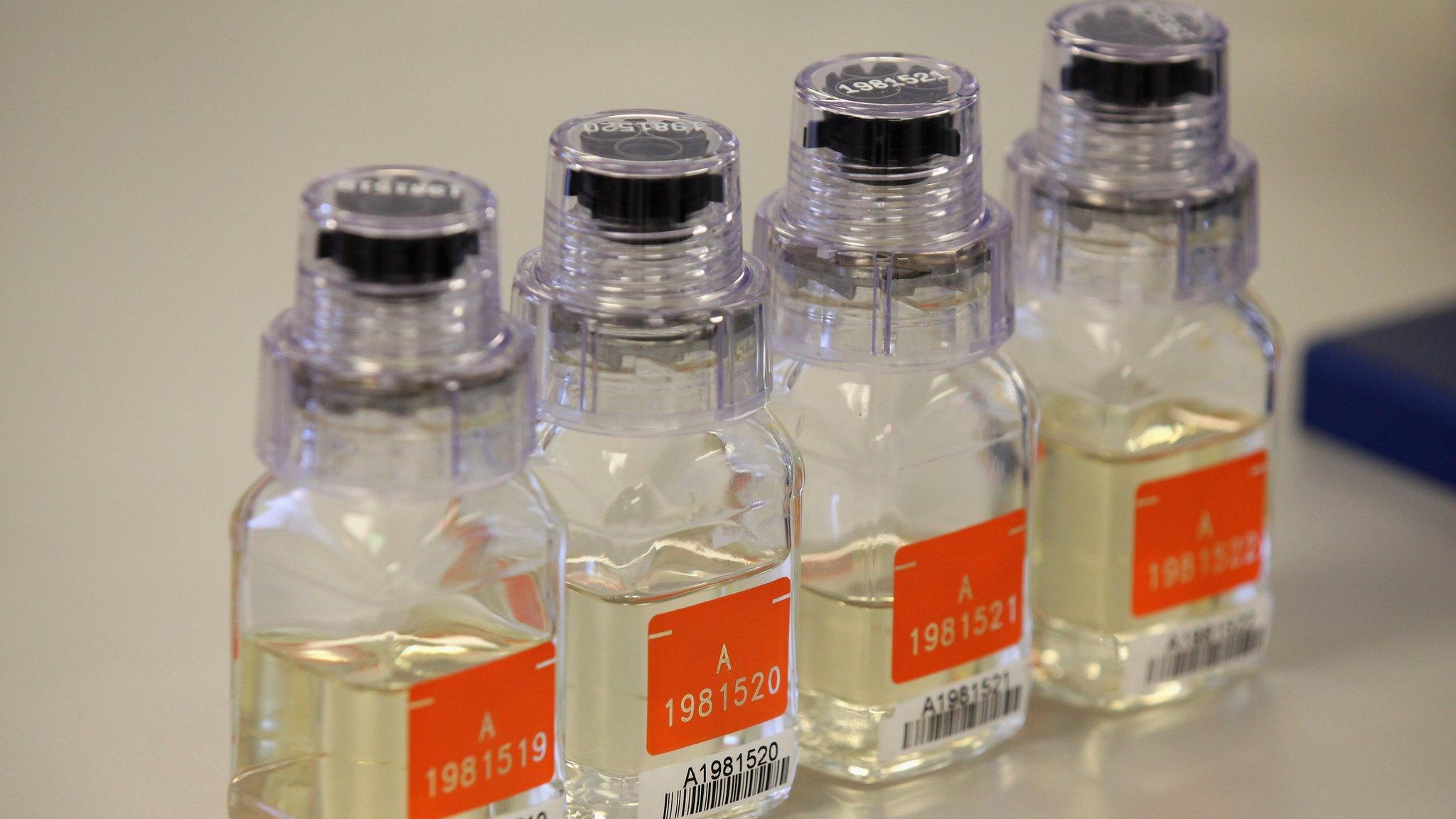
- Published30 April 2013
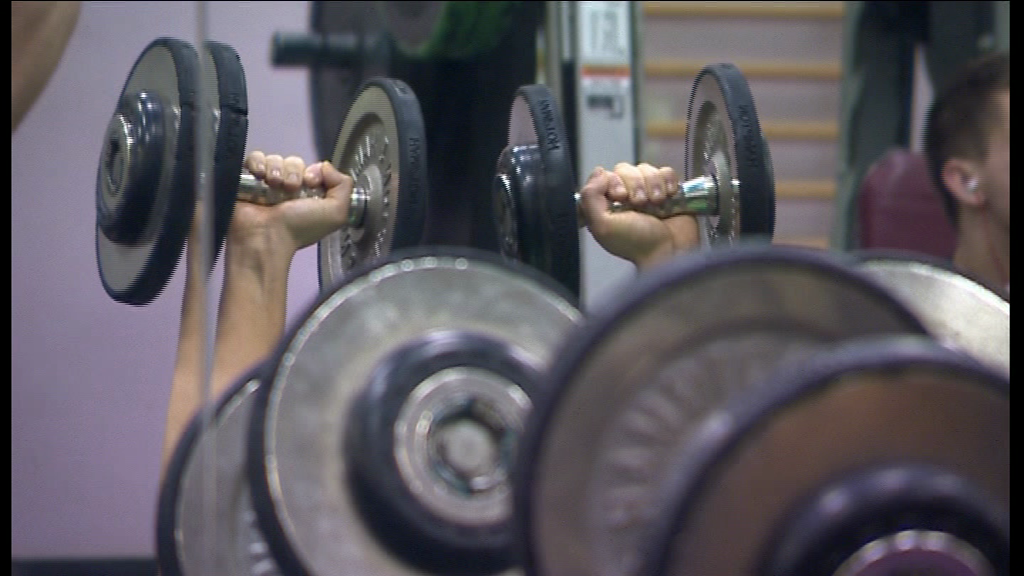
- Published23 January 2013
